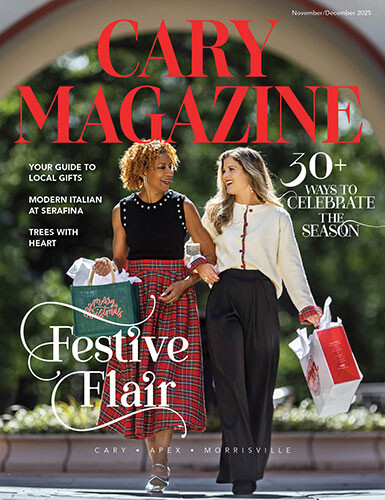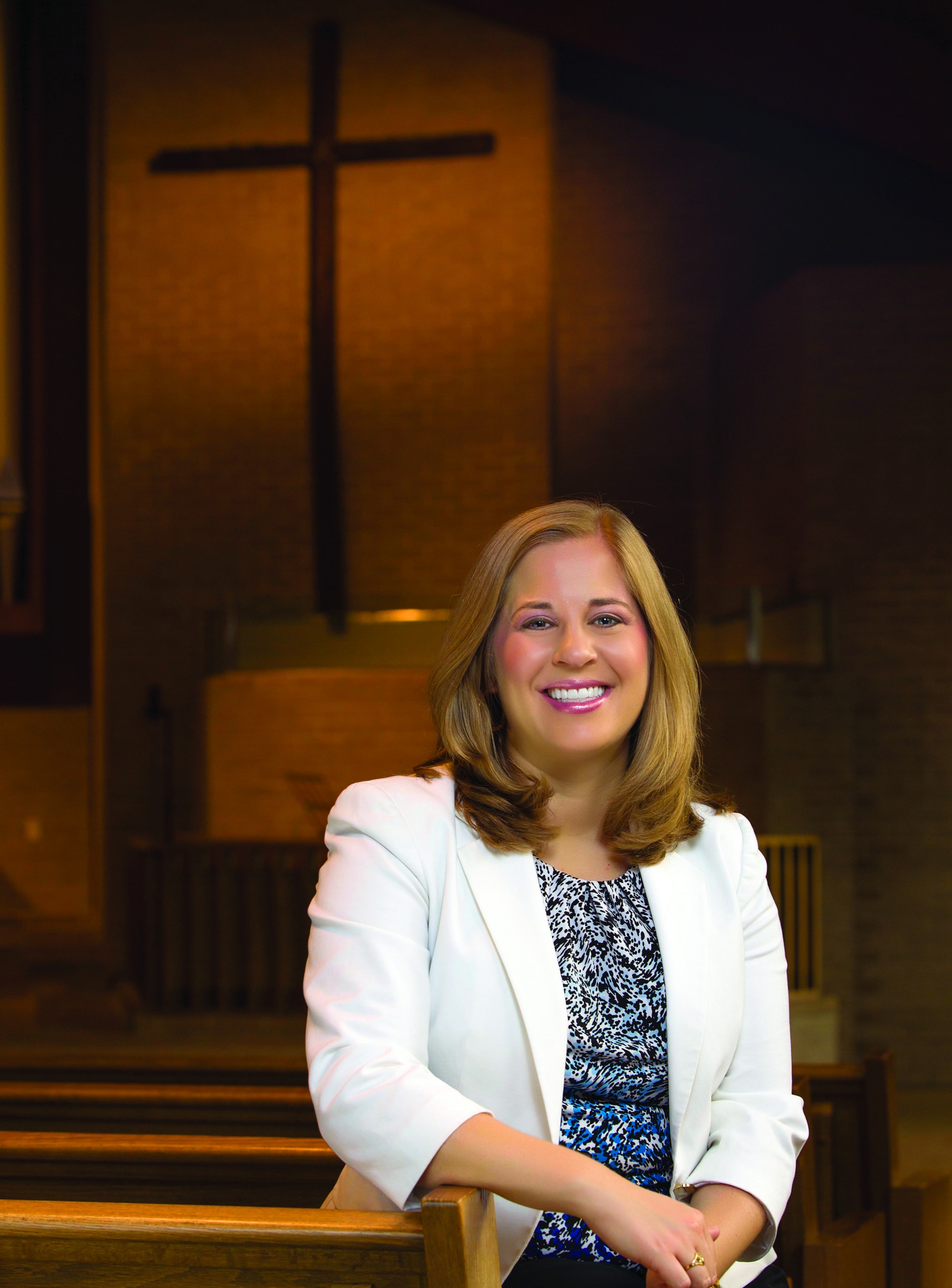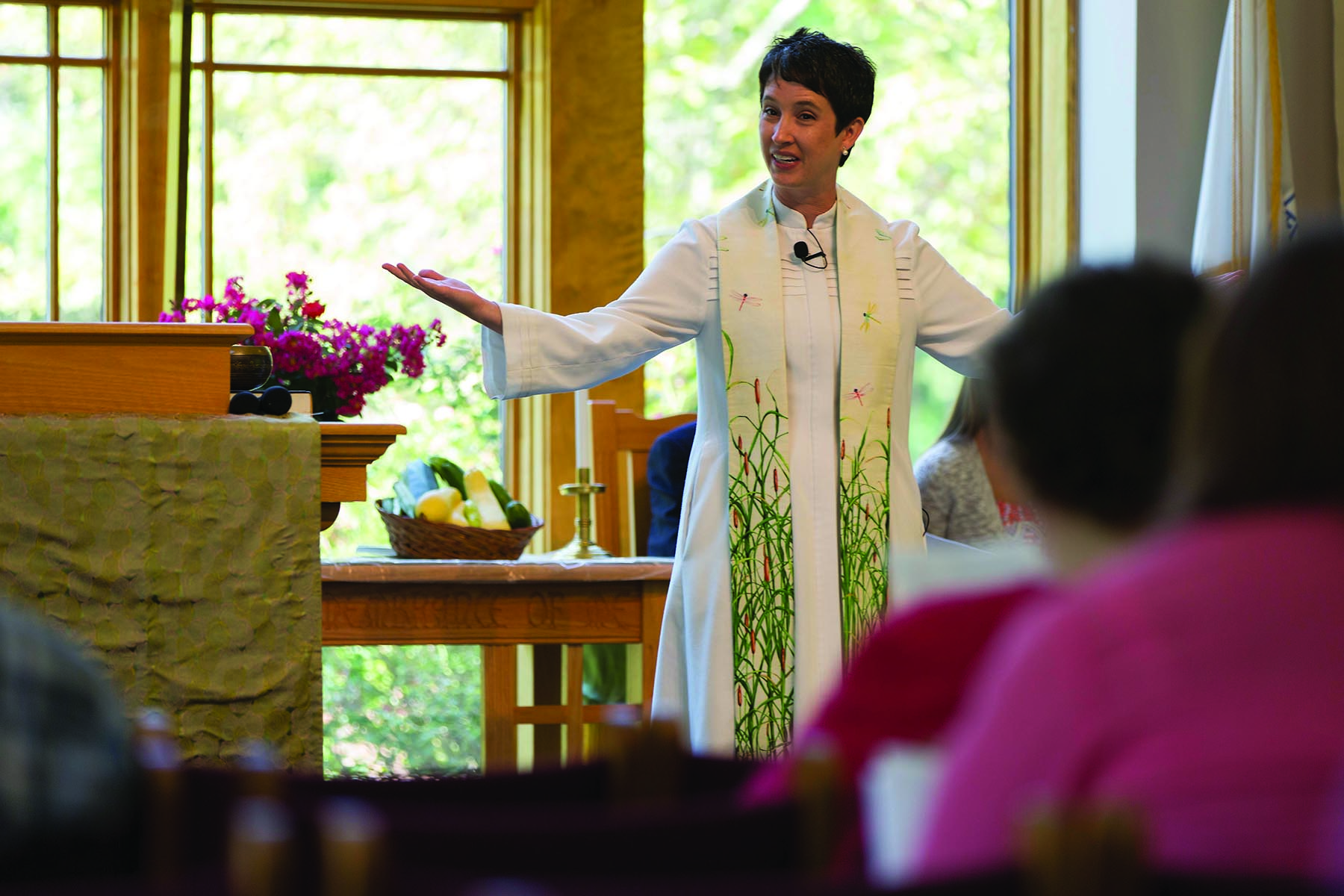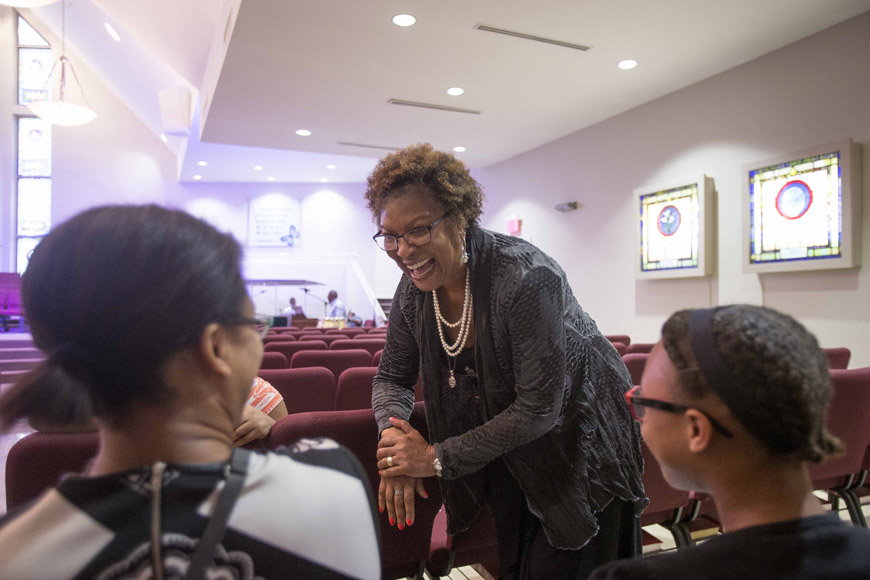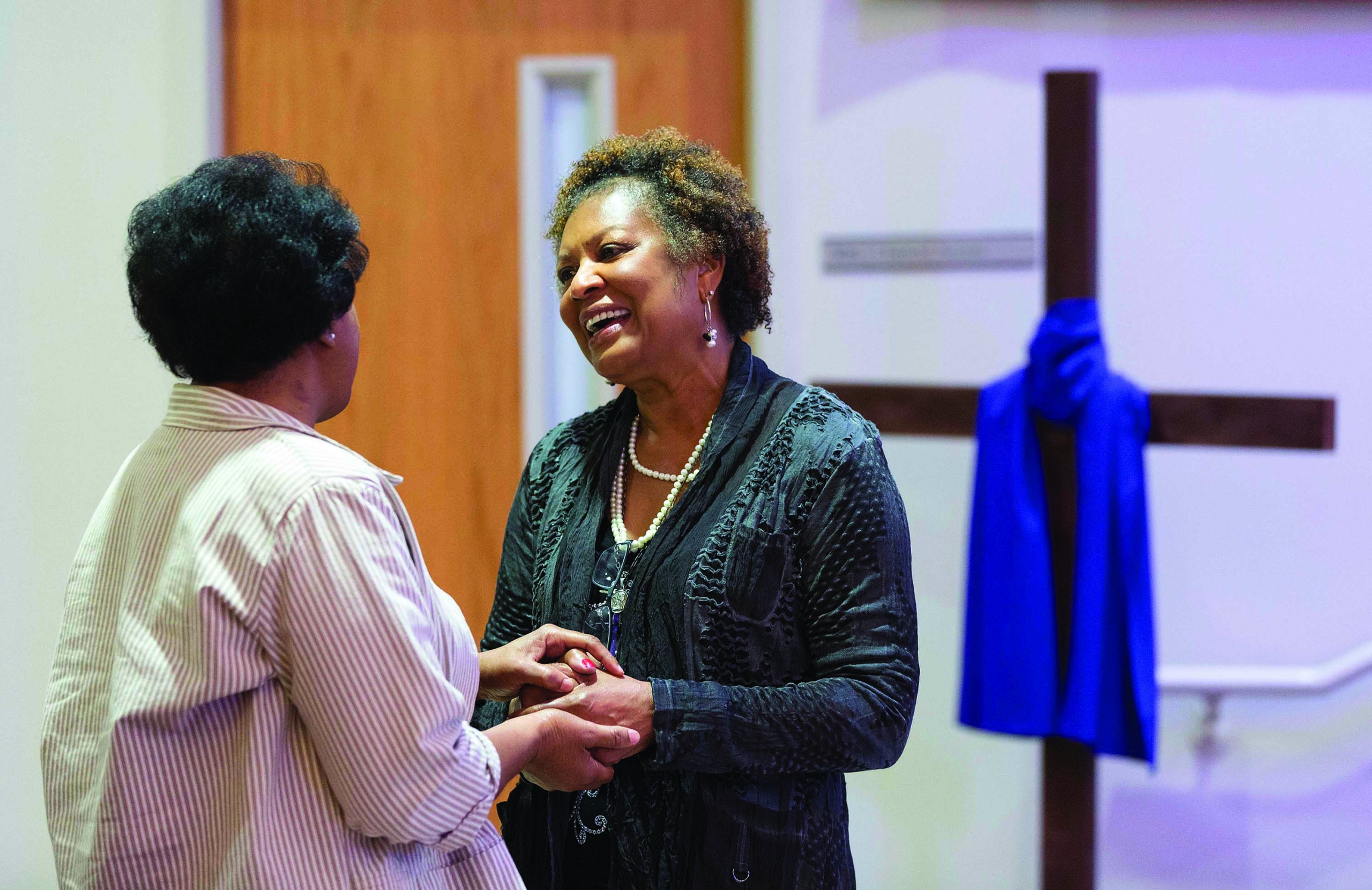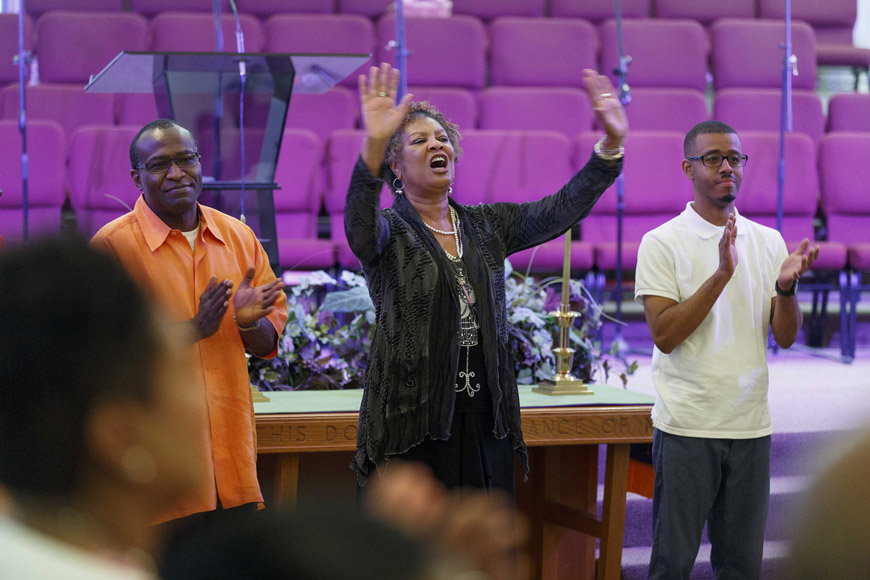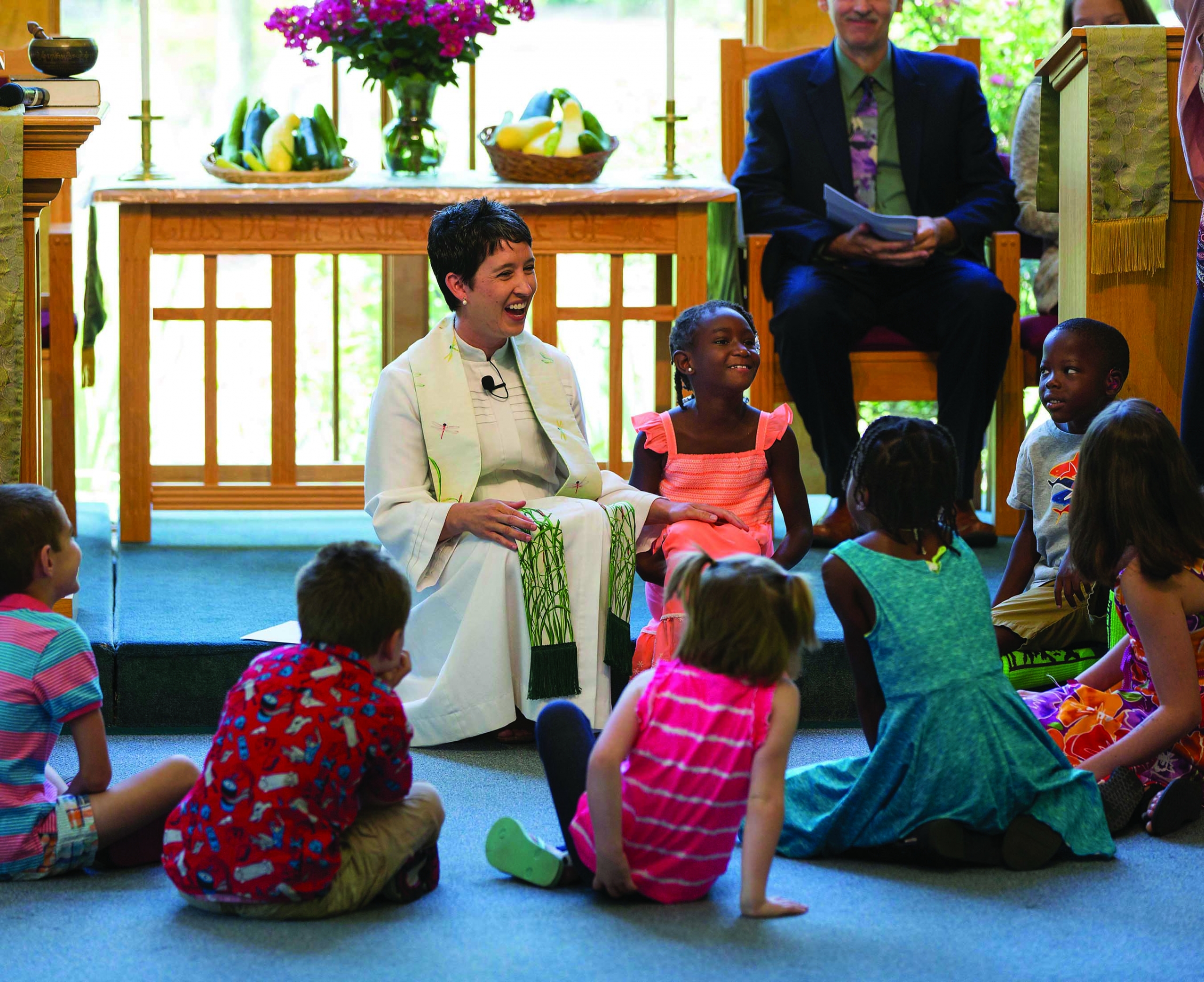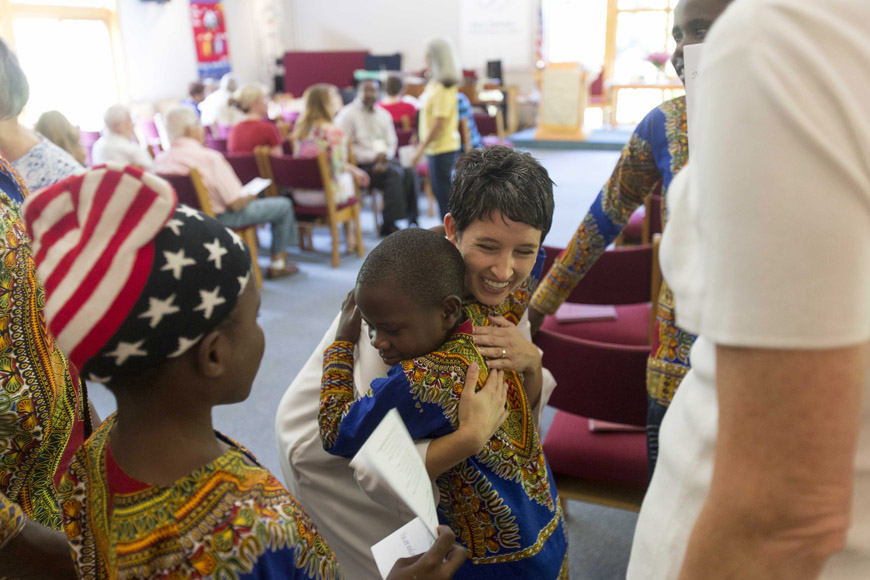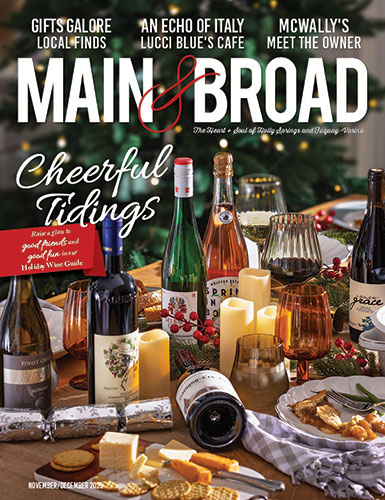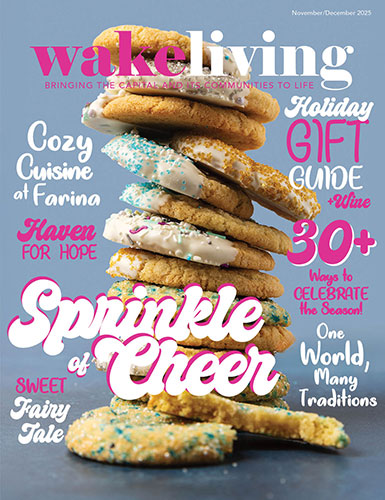Growing up as a Southern Baptist in tiny Camden, S.C., Lauren Efird always knew she wanted to be a preacher.
“I used to sit and teach my baby dolls, but one day my mom heard me preaching to my baby dolls. I had them all in a circle, and I was preaching to them,” said Efird, senior pastor at Greenwood Forest Baptist Church in Cary.
“I really feel that I was strongly called from an early age. Being a pastor and a minister was just who I was.”
Efird, who has been interim pastor since January, was named senior pastor Aug. 21. She is the first female to lead Greenwood Forest.
Although more women than ever are pursuing religious education and entering ministry, there are still few in senior leadership positions. Only 11 percent of churches nationwide were led by women in 2012, according to a National Congregations Study published in 2015. This figure is unchanged from 1998.
For women who lead churches in Cary, several have been the first female to hold that job, and have had challenges along the way. But each agrees with Efird: Being a minister is more than a career choice, it’s who they are.
Finding acceptance
Despite her early leanings, Efird’s path to the pulpit meandered a bit. At Duke Divinity School, she focused on chaplaincy, even doing a residency at UNC Hospitals. But as she sat with people on their deathbeds, she realized she wanted to be present in people’s lives for the whole journey, not just the end. She wanted to be a pastor.
But as a Baptist woman, she knew it was going to be difficult to find a church that would accept her as a minister. One memorable rejection sums up the challenges she faced.
“I interviewed for an associate pastor position for six months,” Efird said. “At the end of the process I was told that one of the reasons I wasn’t hired was because they didn’t want two women of childbearing age on staff.”
Soon after that incident she was hired at Greenwood Forest, where she has been for five years. The congregation, which has about 350 active members, has embraced her. She gives much of the credit to the former senior pastor, Benjamin Boswell, who now leads Myers Park Baptist Church in Charlotte.
“I’ve been able to live out worship leadership here in a way that many women my age and my experience level wouldn’t get to do,” Efird said.
Her own voice
Carla Gregg-Kearns was always involved in religious life, first at her childhood Presbyterian church, then at Salem College in Winston-Salem. But ministry wasn’t even on her radar until her campus minister suggested it.
“She was the one who said, ‘Maybe you could make this a career?’” recalled Gregg-Kearns. “It’s funny to look back on it. How could I not have thought about it before? But I can still remember that moment — feeling like everything suddenly clicked.”
In July 2013, Gregg-Kearns became the first woman to lead Good Shepherd United Church of Christ, when she was named senior pastor.
She calls the 150-member church a wonderful congregation that is open to change, and speaks of finding her own voice as a leader.
“For years there’s been one model of what it is to preach, and because of size and voice, women just didn’t fit into that,” Gregg-Kearns said. “We’ve had to find our own way, which has maybe spurred some creativity in preaching for everybody.”
She leads worship not from a stage, but from a raised dais, about six inches above the floor. Sometimes she preaches at the pulpit. Other times she assumes the role of a Biblical character, telling a story in the middle of the congregation.
Gregg-Kearns says her leadership also looks different, because she doesn’t “come in and run anything.” She organizes meetings, gathers ideas and encourages people to participate.
“I often find when you’re able to bring different experiences and knowledge together, it’s just so much more powerful,” she said. “There’s so many more possibilities than if we’re all the same.”
Be who you are
Classy Preston, who became the first female senior pastor at Pleasant Grove Church nearly 18 years ago, did not grow up around women in church leadership.
“Growing up in the Baptist church, women were sometimes ordained,” she said. “They had seats, but they didn’t really do anything. That always bothered me.”
After she received her divinity degree, Preston set her sights on becoming a missionary. But while attending church in Toledo, Ohio, her minister suggested she reconsider because she “had a pastor’s heart.”
“I didn’t know anything about being a pastor,” said Preston. “What did that mean? What did that look like?”
For Preston that means leading a historically African-American, currently multi-ethnic congregation in Cary, growing the church from 12 members in 1997 to its current 250-plus.
“As women, we sometimes do not realize that God uses us in the same magnitude as God uses men,” she said. “I also realize that sometimes you won’t know what that looks like. That’s the advice my pastor gave me: ‘Don’t try to be anybody else. Be who you are.’”
Preston works hard to make the church a welcoming place for those of various cultures. She invites Asian and Hispanic ministers to preach; the praise band is a mix of African-American, Caucasian and Latino musicians.
“I’m very intentional about diversity and understanding other cultures,” she said. “People want to see themselves in worship. When you come to church and you only see African-American women, then you say ‘Well, there’s no place for me here.’”
Progress to be made
Jeanette Stokes, executive director at the Resource Center for Women and Ministry in the South in Durham, and a Presbyterian minister, agrees that pastors are valuable role models.
Where Women Preach
The primary religious groups that allow women to pastor churches and synagogues
- American Baptist Church
- Episcopal Church
- Evangelical Lutheran Church in America
- Reform and Conservative Judaism
- Presbyterian Church USA
- Unitarian Universalist
- United Church of Christ
- United Methodist Church
Source: Pew Research Center, 2014
“For young people, both boys and girls, it’s important to see women leading in the church and synagogues, because otherwise children get the idea that only men can do that,” she said.
The pastors are encouraged by the increasing number of clergywomen, but say there is still progress to be made.
Donna Banks, lead pastor at St. Francis United Methodist Church in Cary, cites a survey from a class she recently taught at Duke Divinity School. Of the 25 largest United Methodist congregations nationwide from 2011 to 2016, none were led by women.
“There’s still that bit of glass ceiling around larger congregations, feeling like they still need a man,” said Banks, whose church has about 1,400 members.
“At some point women will have those roles, but women can’t lead like men,” she said. “It can’t be that hierarchical kind of leading. Women lead in participatory ways, which is the way leading should occur anyway. That’s one thing we do well; we lead by inviting people in.”
